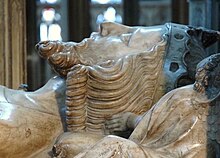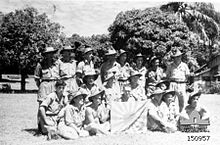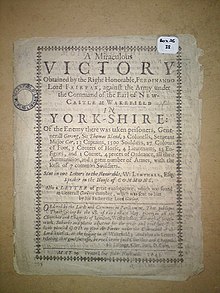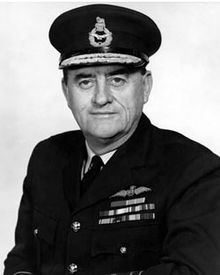The History Portal

Historia by Nikolaos Gyzis
History (derived from Ancient Greek ἱστορία (historía) 'inquiry; knowledge acquired by investigation') is the systematic study and documentation of the human past. History is an academic discipline which uses a narrative to describe, examine, question, and analyze past events, and investigate their patterns of cause and effect. Historians debate which narrative best explains an event, as well as the significance of different causes and effects. Historians debate the nature of history as an end in itself, and its usefulness in giving perspective on the problems of the present.
The period of events before the invention of writing systems is considered prehistory. "History" is an umbrella term comprising past events as well as the memory, discovery, collection, organization, presentation, and interpretation of these events. Historians seek knowledge of the past using historical sources such as written documents, oral accounts or traditional oral histories, art and material artifacts, and ecological markers.
Stories common to a particular culture, but not supported by external sources (such as the tales surrounding King Arthur), are usually classified as cultural heritage or legends. History differs from myth in that it is supported by verifiable evidence. However, ancient cultural influences have helped create variant interpretations of the nature of history, which have evolved over the centuries and continue to change today. The modern study of history is wide-ranging, and includes the study of specific regions and certain topical or thematic elements of historical investigation. History is taught as a part of primary and secondary education, and the academic study of history is a major discipline in universities.
Herodotus, a 5th-century BCE Greek historian, is often considered the "father of history", as one of the first historians in the Western tradition, though he has been criticized as the "father of lies". Along with his contemporary Thucydides, he helped form the foundations for the modern study of past events and societies. Their works continue to be read today, and the gap between the culture-focused Herodotus and the military-focused Thucydides remains a point of contention or approach in modern historical writing. In East Asia a state chronicle, the Spring and Autumn Annals, was reputed to date from as early as 722 BCE, though only 2nd-century BCE texts have survived. The title "father of history" has also been attributed, in their respective societies, to Sima Qian, Ibn Khaldun, and Kenneth Dike. (Full article...)
Featured picture
Did you know (auto generated)

- ... that Lucien Laurent scored the first goal in FIFA World Cup history during the inaugural game of Group 1 of the 1930 World Cup?
- ... that soccer player Danielle Marcano scored four goals in back-to-back games that helped to send the University of Tennessee to the NCAA tournament quarterfinals for the first time in history?
- ... that Fernando Cajías, who belongs to the first generation of professional historians in Bolivia, composed part of history academia's "Mirista wing"?
- ... that in the history of opera in Ukraine, Mykola Lysenko's historical Taras Bulba was the first grand opera, but not performed during his lifetime because he refused a performance in Russian?
- ... that during the early-access period of Hogwarts Legacy, the game set a new record on Twitch with the largest number of concurrent viewers for a single-player game in history?
- ... that former Arizona Cardinals kicker Cedric Oglesby, one of the first African-American kickers in NFL history, received his chance to play when the team's previous kicker injured himself celebrating?
Maximian (Latin: Marcus Aurelius Valerius Maximianus; c. 250 – c. July 310), nicknamed Herculius, was Roman emperor from 286 to 305. He was Caesar from 285 to 286, then Augustus from 286 to 305. He shared the latter title with his co-emperor and superior, Diocletian, whose political brain complemented Maximian's military brawn. Maximian established his residence at Trier but spent most of his time on campaign. In late 285, he suppressed rebels in Gaul known as the Bagaudae. From 285 to 288, he fought against Germanic tribes along the Rhine frontier. Together with Diocletian, he launched a scorched earth campaign deep into Alamannic territory in 288, refortifying the frontier.
The man he appointed to police the Channel shores, Carausius, rebelled in 286, causing the secession of Britain and northwestern Gaul. Maximian failed to oust Carausius, and his invasion fleet was destroyed by storms in 289 or 290. Maximian's subordinate Constantius campaigned against Carausius' successor, Allectus, while Maximian held the Rhine frontier. The rebel leader was ousted in 296, and Maximian moved south to combat piracy near Hispania and Berber incursions in Mauretania. When these campaigns concluded in 298, he departed for Italy, where he lived in comfort until 305. At Diocletian's behest, Maximian abdicated on 1 May 305, gave the Augustan office to Constantius, and retired to southern Italy. (Full article...)
On this day
- 619 – Emperor Gaozu of Tang allowed the assassination of a khagan of the Western Turkic Khaganate by Eastern Turkic rivals, one of the earliest events in the Tang campaigns against the Western Turks.
- 1932 – The Australian military began a "war against emus" (man with dead emu pictured), flightless native birds blamed for widespread damage to crops in Western Australia.
- 1943 – World War II: A U.S. Navy task force turned away an Imperial Japanese Navy formation at the Battle of Empress Augusta Bay, thus protecting the landings at Cape Torokina.
- 1960 – In the trial R v Penguin Books Ltd, publisher Penguin Books was acquitted of obscenity for the publication of Lady Chatterley's Lover by D. H. Lawrence.
- 2007 – In Tbilisi, Georgia, tens of thousands of people demonstrated against the allegedly corrupt government of president Mikheil Saakashvili.
- Bettisia Gozzadini (d. 1261)
- Edward Mitchell Bannister (b. 1828)
- Hélène de Pourtalès (d. 1945)
- Charmaine Dragun (d. 2007)
Selected quote
Genius is one percent inspiration, ninety-nine percent perspiration.
— Thomas Edison, scientist and inventor
Related portals
More Did you know...
- ... that Giovanni de Ventura, a plague doctor who may have worn a beak doctor costume (pictured), was restricted by a covenant to treat only infectious patients? In the nose of the mask, there were types of plants that were used to filter the sickness from the wearer.
- ... that in some archaic Greek alphabets, an Ε could look like a Β, a Β like a C, a Γ like an Ι, an Ι like a Σ, or a Σ like an Μ?
- ... that the Chinese government has published a list of sixty-four important cultural relics that are forbidden to be exhibited outside of China?
- ... that the 1886 novel Albertine expedited the abolition of public prostitution in Norway?
- ... that Carl Sagan worked with the US Air Force on detonating a nuclear device on the Moon?
- ... that Olympic gold medals have been made out of silver, jade, and glass?
- ... that in 1945 a Japanese battalion was rearmed to serve alongside the British 5th Parachute Brigade in the Far East?
- ... that Solomon was accidentally castrated as an infant?
Topics
Categories

History • By period • By region • By topic • By ethnic group • Historiography • Archaeology • Books • Maps • Images • Magazines • Organizations • Fictional • Museums • Pseudohistory • Stubs • Timelines • Chronology • People • Wikipedia historians
WikiProjects
![]() WikiProject History •
Ancient Near East • Australian History • Classical Greece and Rome • Dacia • Former countries • History of Canada • Chinese history • European history • Heraldry and vexillology • Indian history • Jewish history • Medieval Scotland • Mesoamerica • Military history • Middle Ages • History of Science
WikiProject History •
Ancient Near East • Australian History • Classical Greece and Rome • Dacia • Former countries • History of Canada • Chinese history • European history • Heraldry and vexillology • Indian history • Jewish history • Medieval Scotland • Mesoamerica • Military history • Middle Ages • History of Science
WikiProject Time • Days of the Year • Years
WikiProject Biography • Composers • Political figures • Saints • United States Presidents
Things you can do
 |
Here are some tasks awaiting attention:
|
Associated Wikimedia
The following Wikimedia Foundation sister projects provide more on this subject:
-
Commons
Free media repository -
Wikibooks
Free textbooks and manuals -
Wikidata
Free knowledge base -
Wikinews
Free-content news -
Wikiquote
Collection of quotations -
Wikisource
Free-content library -
Wikiversity
Free learning tools -
Wiktionary
Dictionary and thesaurus
![Image 1 Panagiotis Kavvadias or Cawadias (Greek: Παναγιώτης Καββαδίας; 14 May [O.S. 2 May] 1850 – 20 July 1928) was a Greek archaeologist. He was responsible for the excavation of ancient sites in Greece, including Epidaurus in Argolis and the Acropolis of Athens, as well as archaeological discoveries on his native island of Kephallonia. As Ephor General (the head of the Greek Archaeological Service) from 1885 until 1909, Kavvadias oversaw the expansion of the Archaeological Service and the introduction of Law 2646 of 1899, which increased the state's powers to address the illegal excavation and smuggling of antiquities. Kavvadias's work had a particular impact on the Acropolis of Athens, and has been credited with completing its "transformation [...] from castle to monument". Between 1885 and 1890, he removed almost all of the Acropolis's remaining medieval and modern structures, uncovering many ancient monuments in the process. He also played a role in the extensive reconstruction of the site by the architect and engineer Nikolaos Balanos. Though praised initially, the work caused considerable damage to several monuments and was almost completely deconstructed and rebuilt during the later 20th and early 21st centuries. Kavvadias oversaw the opening of the National Archaeological Museum in Athens, organised its first collections, and wrote some of its first catalogues. (Full article...)](http://upload.wikimedia.org/wikipedia/en/d/d2/Blank.png)




















































